Genealogy
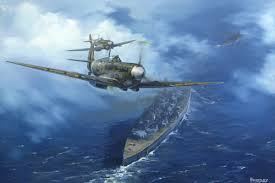 In any war, each side has just one goal in mind…winning. Of course, this is not just a video game or war games, but it is really a life and death challenge. In retrospect, I find it interesting to see some of the strategies the different sides use. While I cannot agree with anything the Germans did under Hitler’s rule, because Hitler was unbelievably ruthless, hateful, and cruel, there were some strategies that either he, his admirals, or his soldiers executed that were quite spectacular, though surprising in nature, because the Germans didn’t usually coordinate their efforts this well. I would never have wanted the Germans to win in World War II, because of their horrible treatment and murders of the Jewish people, but they did have a way of fighting that has captured my interest…at least on this day.
In any war, each side has just one goal in mind…winning. Of course, this is not just a video game or war games, but it is really a life and death challenge. In retrospect, I find it interesting to see some of the strategies the different sides use. While I cannot agree with anything the Germans did under Hitler’s rule, because Hitler was unbelievably ruthless, hateful, and cruel, there were some strategies that either he, his admirals, or his soldiers executed that were quite spectacular, though surprising in nature, because the Germans didn’t usually coordinate their efforts this well. I would never have wanted the Germans to win in World War II, because of their horrible treatment and murders of the Jewish people, but they did have a way of fighting that has captured my interest…at least on this day.
The Germans had controlled and occupied France since June of 1940. Their ships docked in French ports were drawing fire from the British. It became clear that the ships needed to escape. The German battleships Gneisenau and Scharnhorst had been anchored at the port of Brest since March of 1941, and the heavy cruiser, Prinz Eugen had been there since May of 1941. They were periodically subjected to bombing raids and damage at the hands of the British. Now it was time to turn a bad situation into a successful failure, as it were. The Germans knew they were not going to hold onto France here, so now they needed to steal away in the night without getting caught.
It was decided that they would make a mad dash up the English Channel to the safety of German waters. The 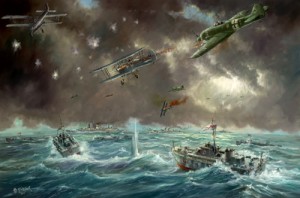 key here was to make the Channel Dash right under the watchful eye of the British Royal Navy without their notice. It was quite risky. Despite the watchfulness of the British submarines and aircraft, the German Vice Admiral, Otto Ciliax launched Operation Cerberus to lead the ships out of the French port, and to the safety of the German ports.
key here was to make the Channel Dash right under the watchful eye of the British Royal Navy without their notice. It was quite risky. Despite the watchfulness of the British submarines and aircraft, the German Vice Admiral, Otto Ciliax launched Operation Cerberus to lead the ships out of the French port, and to the safety of the German ports.
On the evening of February 11, 1942, they set their plan in motion. Accompanied by six German destroyers and twenty one torpedo boats for protection, they moved north late that evening. When daylight hit, they were joined by German planes to provide air cover as well. The air cover was led by ace pilot, Adolf Galland. He was joined by 250 other fighters in a coordinated joint effort of the German Navy and the Luftwaffe…an unusually well coordinated joint effort. The British Royal Navy scrambled to coordinate its own attack, but the late start would prove to be the undoing of the attack, because they did not realize that the escape was in progress until the afternoon of February 12th. All three of the German warships made it to a German port on February 13th, although the Gneisenau and had incurred damaged by British mines along the route. In addition to the embarrassment of the well planned escape that was carried out by the Germans, the British lost 40 aircraft and six Navy Swordfish during their confrontation. The Germans, on the other had, only lost one torpedo boat and 17 aircraft.
Nevertheless, the British would exact a revenge of sorts, when British warships sunk the Scharnhorst in December of 1944, as it attempted to attack a Russian convoy. The Gneisenau was destroyed during a bombing raid, while it was still being repaired from the prior damage, and the Prinz Eugen survived the war, but 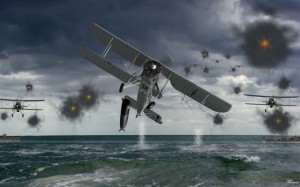 was taken over by the US Navy at the end of the war. It isn’t that I want to commend the Germans for their sneaky escape, because I don’t. They simply lived to fight…and ultimately lose, another day. It was, however, a good strategy, and I guess that even crazy dictators like Hitler, and the men he trained, could come up with an occasional good escape plan. Nevertheless, evil must not be allowed to continue, and the Germans had to be shut down, so the British, and all the other nations who stand for what is good, had to continue to fight, until Germany and its allies had no choice but to surrender. Still, February 11, 1942, the day of The Channel Dash would stand out as one of the best fights put up by the Germans, or at least, the best escape plan.
was taken over by the US Navy at the end of the war. It isn’t that I want to commend the Germans for their sneaky escape, because I don’t. They simply lived to fight…and ultimately lose, another day. It was, however, a good strategy, and I guess that even crazy dictators like Hitler, and the men he trained, could come up with an occasional good escape plan. Nevertheless, evil must not be allowed to continue, and the Germans had to be shut down, so the British, and all the other nations who stand for what is good, had to continue to fight, until Germany and its allies had no choice but to surrender. Still, February 11, 1942, the day of The Channel Dash would stand out as one of the best fights put up by the Germans, or at least, the best escape plan.
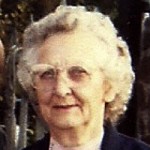 I’m sure that most of you have heard that funny song by Ray Stevens called, “I’m My Own Grandpa”, and while I’m not going to tell you that I’m my own grandma, I will tell you that my husband’s Grandma Hein is my 12th cousin twice removed. We always enjoyed both of his grandmothers, but we got to see so much less of Grandma Hein, that it was very special when we got to go see her. I only knew one of my grandmothers, and my she passed away when Bob and I had only been married eleven years. His Casper grandparents died in the 80’s too, as did his Grandpa Schulenberg in Montana. So, much of my adult life was spent having only Bob’s Montana grandparents, Grandma and Grandpa Hein, in my life. I loved spending time with them, and we made annual trips up to visit them. We wanted our girls to know them too, so the trips were a special family time for all of us.
I’m sure that most of you have heard that funny song by Ray Stevens called, “I’m My Own Grandpa”, and while I’m not going to tell you that I’m my own grandma, I will tell you that my husband’s Grandma Hein is my 12th cousin twice removed. We always enjoyed both of his grandmothers, but we got to see so much less of Grandma Hein, that it was very special when we got to go see her. I only knew one of my grandmothers, and my she passed away when Bob and I had only been married eleven years. His Casper grandparents died in the 80’s too, as did his Grandpa Schulenberg in Montana. So, much of my adult life was spent having only Bob’s Montana grandparents, Grandma and Grandpa Hein, in my life. I loved spending time with them, and we made annual trips up to visit them. We wanted our girls to know them too, so the trips were a special family time for all of us.
After so many years of knowing them, Grandma and Grandpa Hein became my own grandparents. Little did I know then, or at any time during her lifetime, that Grandma Hein was actually my 12th cousin twice removed. When I made that connection a short time ago, I was so surprised. I’ve known for some time now that Bob and I are cousins to varying degrees, but somehow, in my mind, that didn’t officially connect to the prior ancestors. I mean, I knew it, but they didn’t feel like cousins, for some reason. Then I started thinking about that with respect to Grandma Hein when I came across a relationship between her dad’s family and my dad’s family. Somehow, it was at this point that my mind completed wrapping itself around the idea that I was related to Grandma’s family, and it hit me that my grandma was my cousin.
I’m sure that should have hit me before too, but somehow, she was Bob’s grandma, and therefore, mine by marriage, which she technically still is, in addition to our cousinship. I really wish I had know that she was my cousin too, because I think we would have liked that relationship too. I’m sure we would have both been surprised, and we probably would have had a good laugh too. Nevertheless, I think that we both would have liked that fact as well. We were always good friends, so being cousins too, would have been fun.
The cousinship occurred before either of us were ever born, of course. Our common ancestor is John Collamore  who is my 11 great grandfather, and Grandma’s 13th great grandfather, was born in 1500 in England. The fact that we were cousins could not have been easily known at the time of my marriage to Bob. The internet didn’t exist then, and so people had to go to these places to study their lineage. Too much time and too great a cost usually stopped that unless you were very determined. Nevertheless, whether we knew it or not, we are cousins, and I’m sure we will enjoy that conversation when we see each other again in Heaven. Today would have been Grandma Hein’s 106th birthday…and, Groundhog Day, a fact that she liked. Happy birthday Cousin Grandma Hein!! And happy Groundhog Day too…not that it matters in Heaven!! We love and miss you very much!!
who is my 11 great grandfather, and Grandma’s 13th great grandfather, was born in 1500 in England. The fact that we were cousins could not have been easily known at the time of my marriage to Bob. The internet didn’t exist then, and so people had to go to these places to study their lineage. Too much time and too great a cost usually stopped that unless you were very determined. Nevertheless, whether we knew it or not, we are cousins, and I’m sure we will enjoy that conversation when we see each other again in Heaven. Today would have been Grandma Hein’s 106th birthday…and, Groundhog Day, a fact that she liked. Happy birthday Cousin Grandma Hein!! And happy Groundhog Day too…not that it matters in Heaven!! We love and miss you very much!!
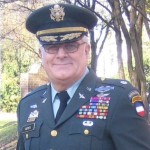 I have been telling you about some of the family connections I have made recently, and how surprised I have been at just who some of these people are. It isn’t always about them being famous, but rather about what amazing things they have done in their lives. So often we don’t hear what our family members have accomplished…mostly because they are too humble to really share all of their accomplishments. Recently, I made a family connection with the Noyes side of my husband, Bob Schulenberg’s family. This would be Bob’s grandmother, Nettie Noyes Knox’s side of the family. The connection was one that in all reality, I stumbled on. I had been searching for information…over a year ago, and I had copied the web addresses of several sites I thought might help, and put them into a Word document. There they sat for far too long. Finally, I found the time to check on one of them, and found the email for Paul Noyes. What an amazing find that was!!
I have been telling you about some of the family connections I have made recently, and how surprised I have been at just who some of these people are. It isn’t always about them being famous, but rather about what amazing things they have done in their lives. So often we don’t hear what our family members have accomplished…mostly because they are too humble to really share all of their accomplishments. Recently, I made a family connection with the Noyes side of my husband, Bob Schulenberg’s family. This would be Bob’s grandmother, Nettie Noyes Knox’s side of the family. The connection was one that in all reality, I stumbled on. I had been searching for information…over a year ago, and I had copied the web addresses of several sites I thought might help, and put them into a Word document. There they sat for far too long. Finally, I found the time to check on one of them, and found the email for Paul Noyes. What an amazing find that was!!
Paul has blessed me with information that I hadn’t found, and I sent him some pictures I had of Noyes family members, to add to his tree. Then he sent back more information on one of the pictures I sent him. He had no idea where that would lead…but I knew, because I had been thinking about a story about him and his family since I received his first response to my email. I love making these new connections, but some of them turn into a great cousinship and friendship too, and those are the most special ones, for sure. I had sent a picture of Eugene Noyes Jr in uniform…but Paul knew from looking at the uniform, that the uniform was from World War II. He knew this because of the 15th Army Air Forces shoulder patch on the uniform. I suppose I might have caught that too, since I had seen my dad’s 8th Army Air Forces shoulder patch, but it was simply something I didn’t notice at all.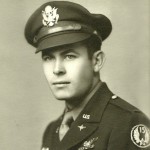
In my defense, I am not a retired after 22 years veteran…and Paul is. Well, that got my curiosity going again. I asked Paul to tell me about his service time. True to the form I have seen with most military men and women…a humble breed…Paul told me a little bit about what he did. He spent most of his 22 year Army career was as an Army aviator. He started out as an Airborne Ranger, then served in Vietnam in Special Forces, where he was wounded. While recovering from the wounds, he was selected for flight school and served in Army Aviation special ops. I did a little research on what Special Operations does exactly, and this is the summary I came up with, “Conduct global special operations missions ranging from precision application of firepower to infiltration, aviation foreign internal defense, exfiltration, resupply and refueling of SOF operational elements.” If you’re like me, that doesn’t clarify much. Upon further research, I found that much of what Special Operations did in Vietnam was to train groups of the Vietnamese Army so they can train the remaining army members. Of course, I am probably generalizing Special Operations to a large degree, and I will have to ask Paul to tell me more about it as soon as I have a chance.
After he was wounded, Paul’s entire career changed when he was selected to become an Army Aviator. Having worked with a pilot for over 18 years now, I have had the opportunity to fly…and I use the term loosely…a small 4 seater plane. Basically what I really did was steer it, and I didn’t do that so well, because it kept climbing, and had to be brought back to level. It was an opportunity given to me with no preparation, and I really enjoyed it. I think to a degree, that is what happened with Paul too. After being wounded, he was given an opportunity to switch gears and do something he never expected to do, and he excelled at it. That is an  awesome career change, and one I look forward to hearing more about.
awesome career change, and one I look forward to hearing more about.
Of course, in a 22 year career, Paul was also building a family. He was married to his lovely wife, Elizabeth, who is an author, and after collaborating with 11 other authors on a book called “A Dozen Apologies”, she released her first book this past August, called “Imperfect Wings”. I look forward to reading both. Paul and Elizabeth have two children, daughter Shari and husband Jimmy Nardello, and their children Cameryn and Reid; and son Chris who is married to Dr Christina Noyes, and they have a son named Owen. I am really looking forward to getting to know these wonderful, new to me cousins as time goes on.
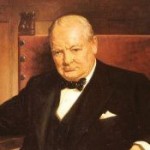 On this day, January 24, 1965, my 15th cousin once removed, Winston Leonard Spencer Churchill passed away. As an eight year old girl, his passing had little impact on my life…then. I wasn’t even aware that he was my cousin, that he had passed away, or of the impact his life had on the people of the world. I especially had no knowledge that as his cousin, I might have been in line for part of his estate, but I was in line for part of it, nevertheless.
On this day, January 24, 1965, my 15th cousin once removed, Winston Leonard Spencer Churchill passed away. As an eight year old girl, his passing had little impact on my life…then. I wasn’t even aware that he was my cousin, that he had passed away, or of the impact his life had on the people of the world. I especially had no knowledge that as his cousin, I might have been in line for part of his estate, but I was in line for part of it, nevertheless.
Of course, in the end, that portion of his estate went to England. From what I am able to gather, Winston Churchill expressed a desire to divide his estate among all of his living relatives…all of them, and believe me, there were a lot of them. The catch was that all of them had to be found or the money went to the state. With family members all over the world, that was a very tall order, and one that would prove fruitless…or at least too big for the task to be completed.
They found our family and the rest of my dad’s side of the family, but somewhere along the way, the search for Winston Churchill’s many family members dwindled to a dead end, and the portion of the estate that was to go to us, was lost to us forever. It’s strange that even then, I knew nothing of the man, the money, or the world-wide search that had taken place. Many have said that perhaps they didn’t search as hard as they should have, and others have said that the search was handled be a disinterested agency. Whatever the case may be, the search failed to find everyone it needed to locate, and that was the end of the story.
I seriously doubt if the money, no matter how substantial, carried a huge impact of the wealth of England or the English Crown. I don’t know how much would have gone to each of the many relatives who were living at that time. It may have been such an insignificant amount that it would have gone almost unnoticed…or maybe it would have been enough change the life of every one of them forever. We will never know, because we don’t know the amount, for sure, or how many would have benefitted from it.
In later years, after I learned of the strangeness of Winston Spencer Churchill’s will, and of his relationship to me, and my part in his will, I wondered why he would have written such a will. He must have known how hard it would be to carry out his last request. He must have assumed that the share each person would receive would be small, at best. So, why would he write such a will? I’m sure he had his reasons, and I am just as sure that we will never know them, but I have never stopped wondering. I’m sure people would think that I wonder about it, because I’m sorry I didn’t get a share of the money, but in reality, it is my opinion that money is a tool to get the things you need, and to bless those around you. All too often, when handed a large amount of  money with no understanding that happiness does not come as a side effect of having it, money ends up ruining the life of the person who received it. So does that mean that I’m against wealth…certainly not. I just think that money has a place, and it makes a great tool, but a terrible master.
money with no understanding that happiness does not come as a side effect of having it, money ends up ruining the life of the person who received it. So does that mean that I’m against wealth…certainly not. I just think that money has a place, and it makes a great tool, but a terrible master.
I have great respect for Winston Spencer Churchill. His abilities, especially in winning wars are well known. I don’t believe he was crazy when he wrote out his will either, but was maybe a man who felt that he could do some measure of good for those who were his family, and by requiring that all be found, he eliminated the ability to leave his inheritance to a chosen few…just in case they were tempted not to look further.
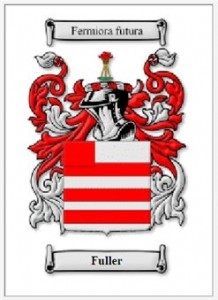 As I have been working through some of the hints on my Ancestry tree, I am amazed by the number of family members from varying sides of my family and my husbands family, who started their life in America, or moved early in their life in America, to the same places. I don’t know if they knew each other, or even if they were there at the same time, but the roots are there nevertheless. They may not have lived in the same town even, but sometimes it was close. One state that I just keep coming up with is Massachusetts. Who would have ever thought some of my roots would have come from Massachusetts?
As I have been working through some of the hints on my Ancestry tree, I am amazed by the number of family members from varying sides of my family and my husbands family, who started their life in America, or moved early in their life in America, to the same places. I don’t know if they knew each other, or even if they were there at the same time, but the roots are there nevertheless. They may not have lived in the same town even, but sometimes it was close. One state that I just keep coming up with is Massachusetts. Who would have ever thought some of my roots would have come from Massachusetts?
Recently I started talking to a relative from my dad’s side of the family that was traced to me through DNA matching. We have been unable to connect our two trees yet, because of limited information back through the generations, but DNA doesn’t lie, and we both have Fuller relatives in our background…and both sides come from…you guessed it, Massachusetts. I have also been looking at the Shaw side of my mother’s family because of another recent connection in Ancestry, that I’m not yet sure is related or not. Nevertheless, once again, I have run into Massachusetts as their point of origin to the United States. In the Shaw family, we also find that we have a 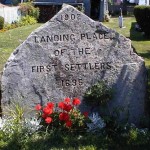 Mayflower connection, in the form of one Lieutenant John Shaw, who arrived in America on that ship.
Mayflower connection, in the form of one Lieutenant John Shaw, who arrived in America on that ship.
Now, switch to my husband’s family, and you will find that the Noyes family, another connection I made recently, also hail from Massachusetts. I have known for some time now, that my husband, Bob Schulenberg, and I are cousins of varying degrees, depending on the side of the family you look at, and now I think I can understand how some of this might have come about. I think much of it can be traced back to Massachusetts. The connections don’t all trace there, but there are enough of them that it made me very curious about all those people who lived in Massachusetts way back then. Then I came across John Spencer, who is my 8th great grand uncle, and the Reverend James Noyes, who is Bob’s 7th great grandfather, both came over on a ship called the Mary and John, and were among the first settlers of Newberry, Massachusetts, so my suspicions are confirmed. That also brings in yet another side of my family…the Spencer side.
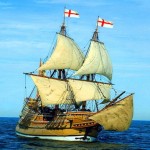
This will be a developing story, of course, because as I trace things further, and discuss more of the family history with these new found cousins, more information will come to light. Whenever I find these new connections, I get very excited, because you just never know where they are going to lead you. I had always through that most of my roots were in the Wisconsin/Minnesota area, but of course, that could not have been, because when our ancestors came to this country, they didn’t arrive in Wisconsin or Minnesota, but rather along the east coast, because that was the area of the nation that had been developed at that time. So in reality, I knew we came from the east coast, but Massachusetts…seriously!! I never would have guessed it.
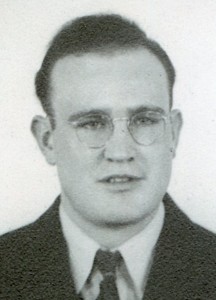 When brothers don’t live in the same town, and in fact live miles from each other, it is easy to find that your brother has changed so much that you don’t recognize him. Such was the case for my Uncle Bill Spencer, and my dad one time when I was a little girl of about eight years. Of course, under normal circumstances, Uncle Bill would have recognized his brother…even if it had been a few years since he saw him last, but my dad had a couple of secret weapons up his sleeve. Dad had grown a beard, which is something he never wore, but this was a special occasion…a centennial celebration, and contest. Since Uncle Bill had not seen him with a beard much, he was at a distinct disadvantage.
When brothers don’t live in the same town, and in fact live miles from each other, it is easy to find that your brother has changed so much that you don’t recognize him. Such was the case for my Uncle Bill Spencer, and my dad one time when I was a little girl of about eight years. Of course, under normal circumstances, Uncle Bill would have recognized his brother…even if it had been a few years since he saw him last, but my dad had a couple of secret weapons up his sleeve. Dad had grown a beard, which is something he never wore, but this was a special occasion…a centennial celebration, and contest. Since Uncle Bill had not seen him with a beard much, he was at a distinct disadvantage.
Another reason that my dad was able to pull one over on his brother is that Uncle Bill was a gun dealer at a gun show, and he never expected his brother to show up there. When we arrived, there were a lot of people milling around. While we stayed out of sight, but where we could watch, Dad went over and started looking casually at some of the guns Uncle Bill had. Uncle Bill was used to letting people take their time, and was waiting to see if anyone had any questions. He simply wasn’t expecting his brother to show up at the gun show, and so he actually looked right through him, 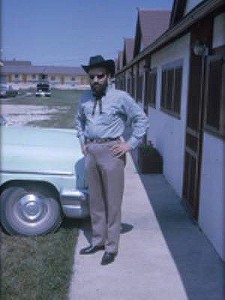 paying no more attention to him that he was to anyone else. When Dad finally asked him a question, it still took a moment for him to connect that this was his brother, because Dad did not look like himself.
paying no more attention to him that he was to anyone else. When Dad finally asked him a question, it still took a moment for him to connect that this was his brother, because Dad did not look like himself.
I’m sure that Uncle Bill was shocked to find that not only was his brother at his gun show, but he had successfully pulled one over on him. The brothers were always joking around, and to be so successful as Dad was in fooling his brother was the ultimate prank in a long line of good natured spoofs that the brothers had played on each other over the years. I can’t say that Uncle Bill never pull a better prank on my dad, because it is entirely possible, but this particular prank was one that was not forgotten, and was probably ranked up there as one of Dad’s best pranks.
This past summer, my mom, sister, Cheryl, and I had the chance to go to Wisconsin and visit Uncle Bill in the nursing home where he lives since Alzheimer’s Disease made it impossible for him to live alone. Because it had been nine years since we last saw him, the memory loss from Alzheimer’s Disease was quite pronounced for us…even though it had actually progressed at a normal pace. We were pleased that while he did not recognize us for ourselves, he did know who we were once we told him that we were his brother’s family. As is common with Alzheimer’s Disease, the patient has good days and bad days. These good days are 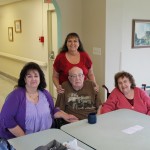 days when their memory is better than other days. We were so blessed in that while most of the conversation centered around the past, Uncle Bill was able to remember and relate much of it to us. It was sad to leave him, because we don’t know if we will see him again in this life or not, but knowing what I do of Alzheimer’s Disease, I know that as quickly as we left, he had forgotten that we were ever there…a blessing in some ways. He didn’t have to feel the sadness of parting that we did. He didn’t even remember that we had been there, but that’s ok, because we knew that we had been there, and he enjoyed the visit while it was taking place. Today is Uncle Bill’s 93rd birthday…an amazing accomplishment for him. Happy birthday Uncle Bill!! Have a wonderful day!! We love you very much!!
days when their memory is better than other days. We were so blessed in that while most of the conversation centered around the past, Uncle Bill was able to remember and relate much of it to us. It was sad to leave him, because we don’t know if we will see him again in this life or not, but knowing what I do of Alzheimer’s Disease, I know that as quickly as we left, he had forgotten that we were ever there…a blessing in some ways. He didn’t have to feel the sadness of parting that we did. He didn’t even remember that we had been there, but that’s ok, because we knew that we had been there, and he enjoyed the visit while it was taking place. Today is Uncle Bill’s 93rd birthday…an amazing accomplishment for him. Happy birthday Uncle Bill!! Have a wonderful day!! We love you very much!!
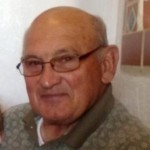 Sometimes in life, we are handed a blessing that takes us by surprise. Such was the case with Uncle Butch Schulenberg. Butch is my father-in-law, Walt Schulenberg’s half brother, and since my father-in-law’s passing, I have had the wonderful opportunity to get to know Butch, if only through Facebook. This is a fact that I’m sure my father-in-law would be quite pleased about. When my father-in-law passed away, we needed to let his family in Forsyth, Montana know. It was a hard time for all of us. Then, something very nice began to happen. I had connected via Facebook with Butch Schulenberg’s daughter, Andi Kay, and that has led to blessed connections with her brothers Tadd and Heath, and her sister-in-law, Jennifer, as well as Butch’s wife, Charlys and their granddaughter Savannah. Each of those connections is a sweet blessing in it’s own way, and I am so thankful for each, but the connection to Butch as been especially wonderful, because of the kind of man he is.
Sometimes in life, we are handed a blessing that takes us by surprise. Such was the case with Uncle Butch Schulenberg. Butch is my father-in-law, Walt Schulenberg’s half brother, and since my father-in-law’s passing, I have had the wonderful opportunity to get to know Butch, if only through Facebook. This is a fact that I’m sure my father-in-law would be quite pleased about. When my father-in-law passed away, we needed to let his family in Forsyth, Montana know. It was a hard time for all of us. Then, something very nice began to happen. I had connected via Facebook with Butch Schulenberg’s daughter, Andi Kay, and that has led to blessed connections with her brothers Tadd and Heath, and her sister-in-law, Jennifer, as well as Butch’s wife, Charlys and their granddaughter Savannah. Each of those connections is a sweet blessing in it’s own way, and I am so thankful for each, but the connection to Butch as been especially wonderful, because of the kind of man he is.
Butch reminds me a lot of my grandfather, George Byer. He is an encouraging sort of man who always makes you feel important. I’m sure his kids and grandkids can attest to that, because I’m sure that over the years he has encouraged them in whatever they chose to do. Of course, being encourage is not the only reason I feel a closeness to Uncle Butch. It’s because he has just welcomed me into his family. Unfortunately, for many years, there was not a closeness between my husband’s grandfather, Andrew Schulenberg, and my father-in-law, Walt Schulenberg, but when they decided to set aside those feelings and reconnect, that was for them the end of a long era of being distant from each other.
It is strange, however, that somehow, I was unaware of the relationship the half brothers had developed. It wasn’t until I was involved in taking care of my father-in-law, that I even knew that they were in touch with each other at all. Of course, it is no surprise that these two men would get along so well, because I believe they are two of a kind. It is a hard thing to fully express the personalities of these men, but gentleness, kindness, encouraging, and accepting are words that all come to my mind. These are attributes that really leave a person no choice but to like the person who has them…and these men have, or in my father-in-law’s case, had these attributes. They leave a person room to be their own person, knowing that the people they respect, also respect them enough to trust their judgment, and celebrate their successes. Even if the accomplishment isn’t anything major, these men could make it feel like it was. Can it get any better than that? I don’t think so.
I’m not saying that I crave praise, or that it is the praise that makes Butch special, because that would be inaccurate. It is just the person Butch is that makes his very dear to me. Every interaction I have with him 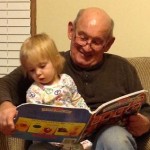 reiterates just how much I like the person he is. At some point, we are hoping to meet up and have an actual face to face conversation, with several of us in attendance, an idea that I am very much looking forward to. Still, for now, I am glad to have connected with him on Facebook, because it has given us the chance to get to know each other. This isn’t Butch’s birthday or any other special day that I know of, but rather just a chance for me to tell this sweet uncle just how glad I am that our families have connected…because he has been such a surprise blessing, and one I feel very thankful to have received. Of course, that blessing is nothing new to those who have known Butch all their lives. Thank you Butch for being an important part of my life, and the lives of all the people you touch with your gentle kindness. We love you!!
reiterates just how much I like the person he is. At some point, we are hoping to meet up and have an actual face to face conversation, with several of us in attendance, an idea that I am very much looking forward to. Still, for now, I am glad to have connected with him on Facebook, because it has given us the chance to get to know each other. This isn’t Butch’s birthday or any other special day that I know of, but rather just a chance for me to tell this sweet uncle just how glad I am that our families have connected…because he has been such a surprise blessing, and one I feel very thankful to have received. Of course, that blessing is nothing new to those who have known Butch all their lives. Thank you Butch for being an important part of my life, and the lives of all the people you touch with your gentle kindness. We love you!!
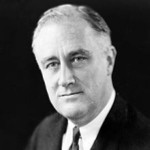
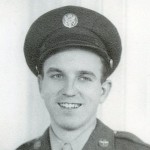 In the height of World War II, on January 14, 1943, President Franklin D Roosevelt made history when he became the first president to travel by airplane on official business. The trip was not without danger. The German U-boats were wreaking havoc on Allied war ships in the Atlantic, and it was decided that a face to face conference was needed to discuss strategy. The man President Roosevelt was going to see, was my fifteenth cousin once removed, Winston Spencer-Churchill. No American President had flown on official business before, but with security in the Atlantic uncertain, Roosevelt’s advisors reluctantly agreed that he should fly. I’m sure his frail health at 60 years of age played a part in their decision too. The secret trip began on January 11, and the plane had to make several stops along the way. They took off from Florida with a first stop in the Caribbean to refuel and allow the president to rest. They then took off and headed south along the South American coast to Brazil, then across the Atlantic to Gambia, finally reaching Casablanca on this day, January 14, 1943.
In the height of World War II, on January 14, 1943, President Franklin D Roosevelt made history when he became the first president to travel by airplane on official business. The trip was not without danger. The German U-boats were wreaking havoc on Allied war ships in the Atlantic, and it was decided that a face to face conference was needed to discuss strategy. The man President Roosevelt was going to see, was my fifteenth cousin once removed, Winston Spencer-Churchill. No American President had flown on official business before, but with security in the Atlantic uncertain, Roosevelt’s advisors reluctantly agreed that he should fly. I’m sure his frail health at 60 years of age played a part in their decision too. The secret trip began on January 11, and the plane had to make several stops along the way. They took off from Florida with a first stop in the Caribbean to refuel and allow the president to rest. They then took off and headed south along the South American coast to Brazil, then across the Atlantic to Gambia, finally reaching Casablanca on this day, January 14, 1943.
It seems strange to us now that they would take such a roundabout route, but things were different then. The Boeing 314 Flying Boat that had been dubbed the Dixie Clipper was a big heavy plane. It had a flight range of 3,500 miles, and the direct route would have been about 4326 miles, making at lease one stop necessary. Since the Secret Service considered air travel for a president as risky anyway, I’m sure they wanted to take a 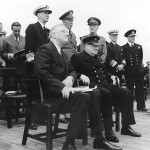 route that would keep them as far away from any fighting as they could. Also, the final leg of the trip required that the group transfer to an Army transport plane. The C-54 was required to fly at 15,000 feet to cross the Atlas Mountains…an altitude that seems insignificant today, but must have been quite high then. The Secret Service personnel and FDR’s advisors were worried about the oxygen levels affecting the president, and in the end, he did have to go on oxygen for a time during that part of the flight.
route that would keep them as far away from any fighting as they could. Also, the final leg of the trip required that the group transfer to an Army transport plane. The C-54 was required to fly at 15,000 feet to cross the Atlas Mountains…an altitude that seems insignificant today, but must have been quite high then. The Secret Service personnel and FDR’s advisors were worried about the oxygen levels affecting the president, and in the end, he did have to go on oxygen for a time during that part of the flight.
The flight was mastered successfully, and the two men were safely tucked into the Anfa Hotel where Roosevelt and Churchill were both in suites that were close together, making it the perfect place for the conference to take place…after the rooms were cleared of listening devises that had been planted by unknown persons, that is. The advisors and chiefs of staff did most of the hard work of the negotiations, but the presence of Roosevelt and Churchill kept them on task and working toward an agreement. The conference was very important to both sides, as the British were being hit very hard, and Roosevelt needed to keep the American troops advancing and winning their battles, so he could demonstrate to the American people that the tide of this war was turning. People get weary of war quite quickly, and in order to keep their support, victory in battle is key.
The Casablanca Conference was looked at by some as a victory for the British negotiators, because Churchill’s strategy prevailed, but they had missed the fact that the Americans also gained British commitments to long-term goals that went beyond the immediate objectives in the Mediterranean. The Americans agreed to attack Sicily after the victory in North Africa and the British agreed to allow a massive buildup of Allied Forces in 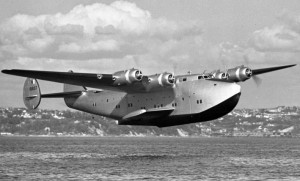 Britain, which would allow for an invasion of France with a target date of May 1, 1944. The invasion actually took place on June 6, 1944, and would become a day we all know as D-Day, when the troops stormed the beaches of Normandy…and that is where my dad came in. Since he was one of the Allied Forces that was stationed in England, his B-17G Bomber was one of those that provided cover for that invasion. It seems quite strange to me that a conference that took place over a year before, and 2 months prior to my dad’s enlistment, would ultimately place him in a position to fight in one of the most well known battles of World War II.
Britain, which would allow for an invasion of France with a target date of May 1, 1944. The invasion actually took place on June 6, 1944, and would become a day we all know as D-Day, when the troops stormed the beaches of Normandy…and that is where my dad came in. Since he was one of the Allied Forces that was stationed in England, his B-17G Bomber was one of those that provided cover for that invasion. It seems quite strange to me that a conference that took place over a year before, and 2 months prior to my dad’s enlistment, would ultimately place him in a position to fight in one of the most well known battles of World War II.
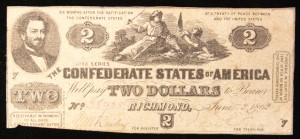 Lately, I have been thinking about the Civil War. I think that most of us have an ancestor or two who fought in the Civil War, possibly from both sides. This was a bloody war that really seems to have been a matter of who could hold out the longest. In the end both sides found themselves scavenging everything from food and water to ammunition from the people who lived in the area. But, the really bad part about the Civil War, was that because the South had succeeded from the Union, and had made their own money, they had a serious problem upon losing the war. After their loss, the South once again became a part of the Union, and their money became worthless.
Lately, I have been thinking about the Civil War. I think that most of us have an ancestor or two who fought in the Civil War, possibly from both sides. This was a bloody war that really seems to have been a matter of who could hold out the longest. In the end both sides found themselves scavenging everything from food and water to ammunition from the people who lived in the area. But, the really bad part about the Civil War, was that because the South had succeeded from the Union, and had made their own money, they had a serious problem upon losing the war. After their loss, the South once again became a part of the Union, and their money became worthless.
These were people who had owned plantations and slaves. They were among the wealthiest people in the 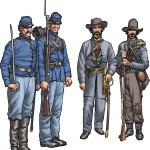 nation. Suddenly they found themselves broke…unless they happened to own gold, and I don’t think many of them did. People had loads of cash, but it wouldn’t buy anything. It might as well have been counterfeit. Not only that, but the entire banking system fell apart. The South found itself in the unique position of not only losing the war, but of losing itself. They were trying to become their own nation, but when they lost the war, they lost their nation. Then, to make matters worse, they lost the money they had too.
nation. Suddenly they found themselves broke…unless they happened to own gold, and I don’t think many of them did. People had loads of cash, but it wouldn’t buy anything. It might as well have been counterfeit. Not only that, but the entire banking system fell apart. The South found itself in the unique position of not only losing the war, but of losing itself. They were trying to become their own nation, but when they lost the war, they lost their nation. Then, to make matters worse, they lost the money they had too.
The whole financial system for them had to be rebuilt. Add to the fact that their side lost the war, the fact that these previously wealthy southern gentlemen and women were now broke, and were forced to work for a living. Their slaves were free, and if they wanted them to work for them, they had to pay them…but with what. The governments war debts were hard enough to deal with, but the individual was in much deeper trouble, because if they had no money, they had no food. There was no money to buy seeds to plant, or cattle to raise…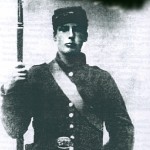 or even ammunition to hunt with, if there was anything left to hunt after your neighbors hunted ahead of you.
or even ammunition to hunt with, if there was anything left to hunt after your neighbors hunted ahead of you.
In the end, I suppose that the only solution was time. Thankfully, the difference between being broke and having money is one paycheck. Debt is something people can learn to live with. There will always be bills to pay, and the family that can keep from borrowing money will do better than the one that must borrow to make ends meet. And the biggest problem they had was that there was no place to borrow from. The people of the south had to learn to work…and that was going to be something very new to most of them.
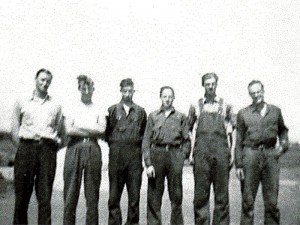 I was looking at some of my uncle, Bill Spencer’s family history information yesterday, and I came across a comment he made about some of the pictures. It was about the National Youth Administration that was transferred to the War Manpower Commission in 1941. When he mentioned that it was about educating the nation’s youth, I immediately got on the defensive, because I thought that it almost sounded like the Nazis pulling children out of their homes to train them the way the government wanted them to be trained. Of course, that couldn’t be further from the truth. In reality, and had I read the rest of Uncle Bill’s comments before I got touchy about it, I would have known that. I think sometimes, we have a preconceived idea about things, and we don’t really understand exactly what is going on before we fly off the handle.
I was looking at some of my uncle, Bill Spencer’s family history information yesterday, and I came across a comment he made about some of the pictures. It was about the National Youth Administration that was transferred to the War Manpower Commission in 1941. When he mentioned that it was about educating the nation’s youth, I immediately got on the defensive, because I thought that it almost sounded like the Nazis pulling children out of their homes to train them the way the government wanted them to be trained. Of course, that couldn’t be further from the truth. In reality, and had I read the rest of Uncle Bill’s comments before I got touchy about it, I would have known that. I think sometimes, we have a preconceived idea about things, and we don’t really understand exactly what is going on before we fly off the handle.
The education effort that my uncle was talking about was set up by the National Youth Administration through the War Manpower Commission, and had to do with the upcoming and inevitable entrance of the United States into World War II. The skills that were going to be needed to build the equipment needed for our troops to fight in the war were very different from the skills the nation’s youth had at that time, because many of them were farmers. The nation was going to need welders, machinists, and sheet metal workers desperately. The training program was designed to provide training for youth 16 to 25 years of age. The plan was that the ones who were not drafted could help with the war effort at home.
It was this program that trained my dad, Uncle Bill, Aunt Laura, and Aunt Ruth to weld, and gave them jobs in the shipyards in several different capacities, mostly as Rosie the Riveters. Of course, while Uncle Bill did a similar job to the ones done by his sisters, I don’t think he would take too kindly to the name Rosie the Riveter. Nevertheless, it was on May 1, 1942 that Uncle Bill began his training, and shortly there after, he talked my dad into doing the training too. Uncle Bill had hoped that welding would keep them both on the home front, but when that was not to be, they both went to sign up. Dad was accepted, but Uncle Bill was not, because of flat feet and a hernia. Still, the welding skill was not something that would ever be a waste where my dad was concerned, because he worked as a welder for most of his life after the war was over.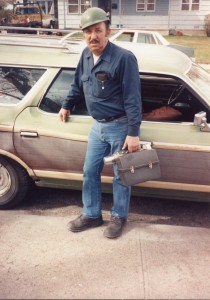
The National Youth Administration officially operated from June 26, 1935 to 1939, and was designed to provide training and help find jobs for people during the Great Depression. It was part of The New Deal programs set up by President Franklin D Roosevelt during his first term in office. I don’t often agree with government run programs, I suppose this one had it’s place. Many of the people who benefitted from the chance to train themselves for a new skill were farmers who didn’t have many other skills, and it was the training my dad received there that supported our family for his entire working life. The National Youth Administration was officially transferred to the War Manpower Commission in 1942, and officially folded in 1943. It was most likely due to lack of funding to continue the program, but I suppose it served a greater purpose during the war years, and now was no longer necessary.

